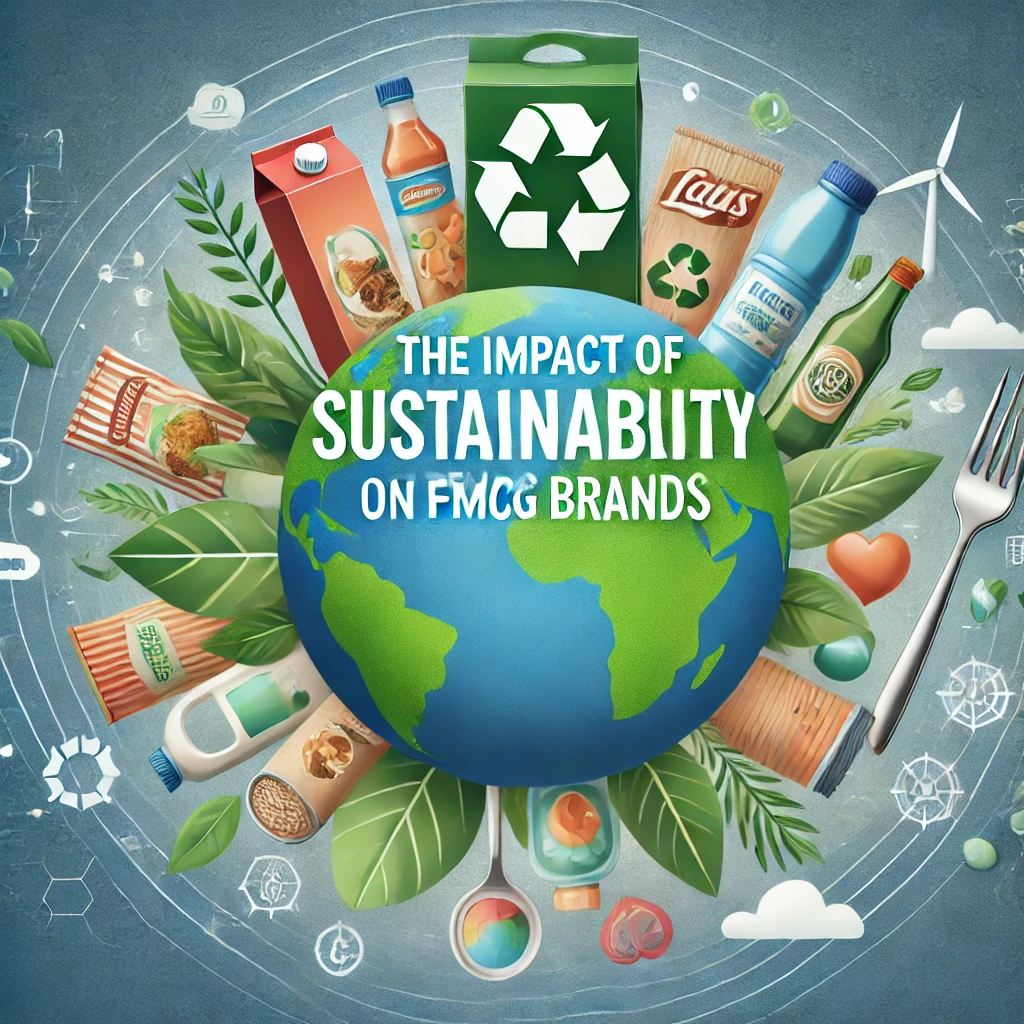The growing importance of sustainability is impacting the Fast-Moving Consumer Goods (FMCG) industry. Consumers are now more conscious about the environment and prefer brands that prioritize sustainable practices. As a result, many FMCG companies are adapting their operations and products to meet these expectations. In this article, we will explore the impact of sustainability trends on FMCG brands and highlight top brands leading the charge.
Why Sustainability Matters in FMCG Brands
Consumer Expectations and Behavior
Today’s consumers are highly aware of environmental issues like plastic pollution, climate change, and resource depletion. This awareness has led to a shift in buying behavior. Customers are now looking for products that are eco-friendly, ethically sourced, and have minimal impact on the environment. Brands that fail to recognize this change risk losing their competitive edge.
Business Impact
Sustainability is not just a trend; it’s becoming a core part of many FMCG brands’ business strategies. By adopting sustainable practices, companies can:
- Enhance brand loyalty
- Gain a competitive advantage
- Save costs through waste reduction and efficient resource use
- Meet regulatory compliance
In the following sections, we will rank and discuss some key FMCG brands that are making significant strides towards sustainability.
Top 10 Sustainable FMCG Brands
FMCG Brands Adopting Sustainability
The following table ranks the top 10 FMCG brands based on their sustainability initiatives and the impact of these measures on their brand value:
| Rank | Brand | Key Sustainability Initiatives | Impact on Brand Image |
|---|---|---|---|
| 1 | Unilever | 100% renewable energy, plastic reduction | Strong positive impact |
| 2 | Nestlé | Sustainable sourcing, reducing water usage | Positive brand loyalty |
| 3 | Procter & Gamble | Reduced carbon footprint, sustainable packaging | Boost in brand trust |
| 4 | Coca-Cola | Water stewardship, recycled packaging | Positive brand shift |
| 5 | PepsiCo | Net-zero emissions plan, agriculture sustainability | High customer approval |
| 6 | Danone | Carbon-neutral goals, improving biodiversity | Improved public image |
| 7 | Mars Inc. | Zero waste to landfill, sustainable cocoa sourcing | Better reputation |
| 8 | Colgate-Palmolive | Responsible packaging, climate action initiatives | High trust rating |
| 9 | Johnson & Johnson | Waste reduction, sustainable procurement | Enhanced credibility |
| 10 | L’Oréal | Reducing water consumption, circular economy approach | Strong brand loyalty |
The Role of Innovation in Sustainability
Focus on Packaging
One of the most prominent trends in sustainability is the shift towards eco-friendly packaging. FMCG brands are investing in innovative packaging solutions that reduce waste and promote recycling. Brands like Unilever, Coca-Cola, and PepsiCo are leading the way in developing biodegradable packaging and using recycled materials.
Case Study – Coca-Cola’s Sustainable Packaging Efforts
Coca-Cola has committed to producing 100% recyclable packaging and aims to collect and recycle a bottle or can for each one sold by 2030. This move not only reduces plastic waste but also enhances Coca-Cola’s brand image as an eco-conscious company.
Renewable Energy Adoption
Another significant trend is the adoption of renewable energy sources. FMCG brands are shifting towards clean energy to power their operations and reduce carbon emissions. Nestlé, for instance, has made significant progress towards achieving 100% renewable energy across its facilities.
Challenges Faced by FMCG Brands in Implementing Sustainability
Supply Chain Complexities
One of the biggest challenges in adopting sustainability is managing the supply chain. FMCG brands often rely on extensive supply chains involving multiple suppliers across different regions. Ensuring that all suppliers adhere to sustainable practices can be difficult, but it is crucial for maintaining brand integrity.
Ethical Sourcing and Fair Trade
Brands like Mars Inc. have taken steps to address these issues by focusing on sustainable sourcing practices. For instance, Mars Inc. has committed to sourcing 100% of its cocoa from certified sustainable farms by 2025.
Consumer Perception and Costs
While sustainability is becoming increasingly important, not all consumers are willing to pay a premium for sustainable products. FMCG brands face the challenge of balancing sustainability with affordability to appeal to a broader customer base.
The Financial Impact of Sustainability on FMCG Brands
Increased Brand Value and Sales
Sustainable practices are proving to be financially beneficial for FMCG brands. Companies that adopt sustainability often see a boost in brand value, increased sales, and better customer loyalty.
| Brand | Sustainability Initiatives | Impact on Revenue (%) |
|---|---|---|
| Unilever | Renewable energy, zero waste | 5% revenue increase |
| Nestlé | Water conservation, eco-packaging | 4% growth in sales |
| Danone | Carbon-neutral certification | 6% improvement |
| Coca-Cola | 100% recyclable packaging | 3% rise in profits |
| PepsiCo | Net-zero emissions plan | 5% growth in revenue |
Cost Savings through Efficiency
Sustainable practices like energy efficiency, waste reduction, and water conservation also lead to cost savings. For example, Nestlé has reduced its water usage by 30%, resulting in significant cost reductions.
Future Trends in Sustainability for FMCG Brands
Focus on Circular Economy
The future of sustainability in the FMCG industry is likely to revolve around the circular economy model. Brands are aiming to design products and packaging that can be reused, recycled, or repurposed. L’Oréal is an example of a company investing heavily in circular economy practices by creating refillable and reusable packaging solutions.
Climate Action Goals
Many FMCG brands are setting ambitious climate goals to achieve net-zero emissions by 2050. Johnson & Johnson, for example, has pledged to reduce its carbon footprint by 30% by 2030. Such commitments will help these brands build stronger relationships with consumers and investors who prioritize sustainability.
Conclusion
Sustainability is no longer just an option for FMCG brands—it’s a necessity. Consumers are increasingly choosing brands that care about the environment and contribute positively to society. FMCG brands that adopt sustainable practices are not only meeting customer expectations but also benefiting from increased brand loyalty, cost savings, and revenue growth.
By focusing on eco-friendly packaging, renewable energy, ethical sourcing, and innovative solutions, FMCG brands can secure a sustainable future. As the industry continues to evolve, sustainability will remain a key driver of success for FMCG companies.

